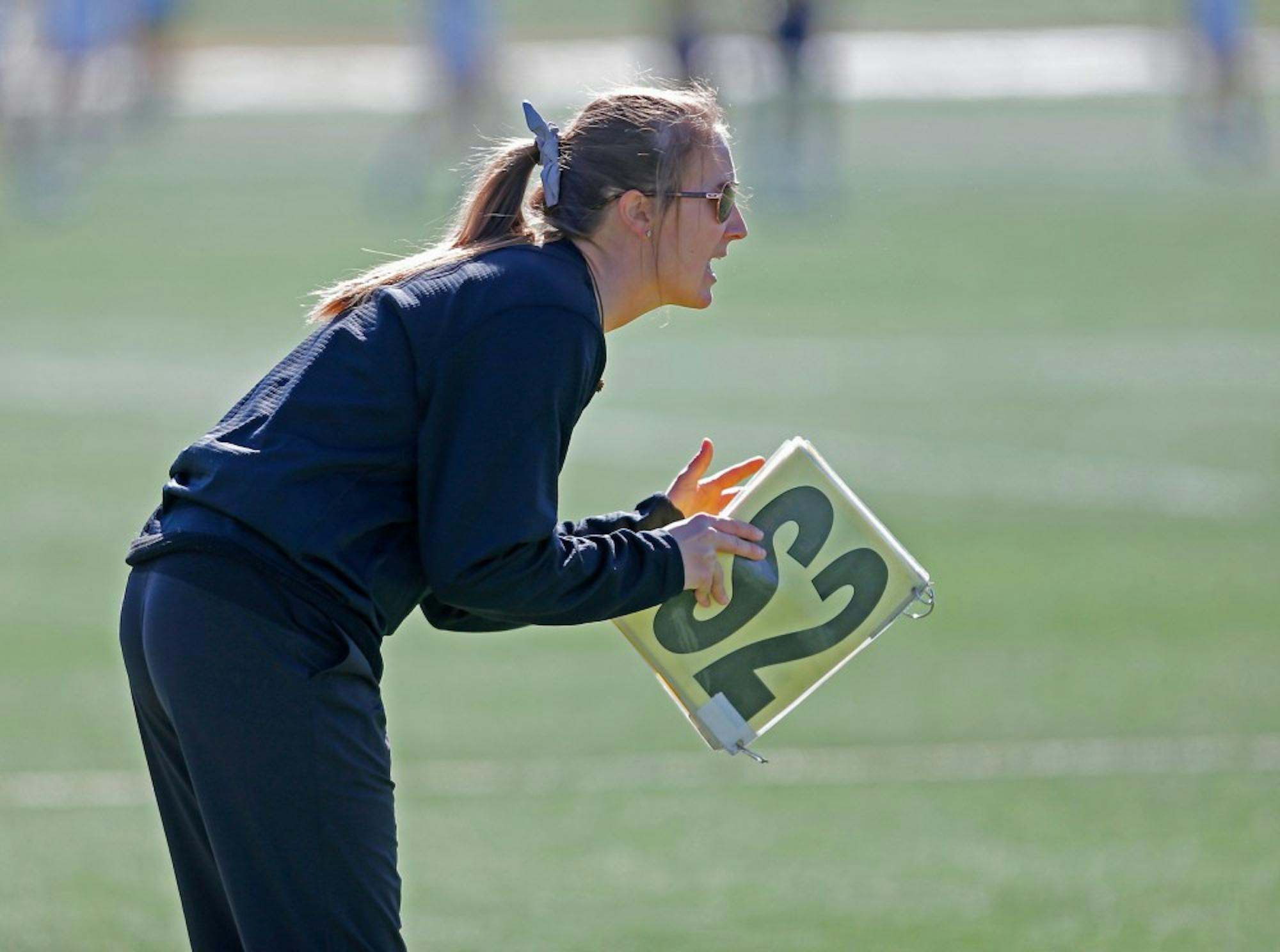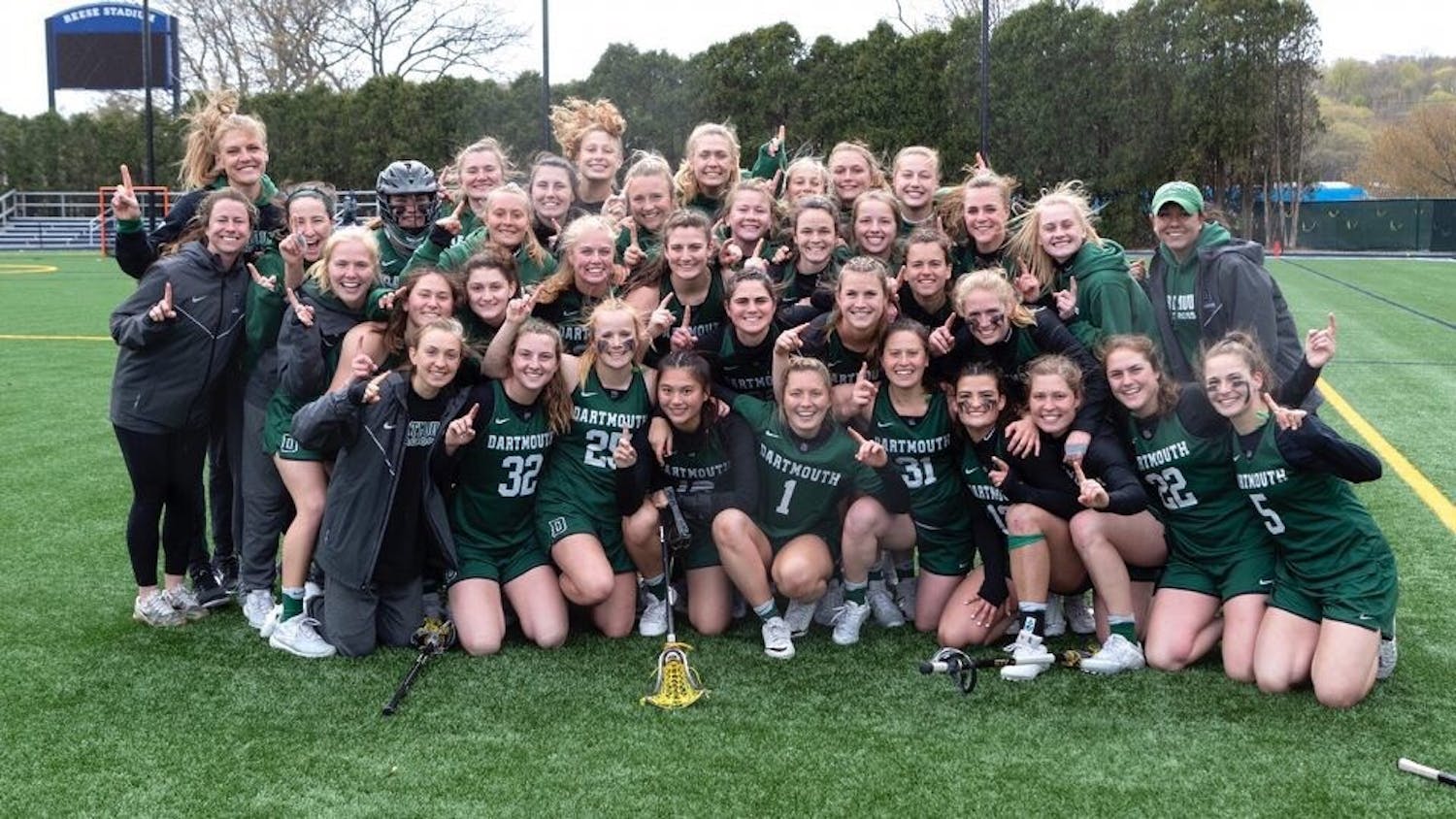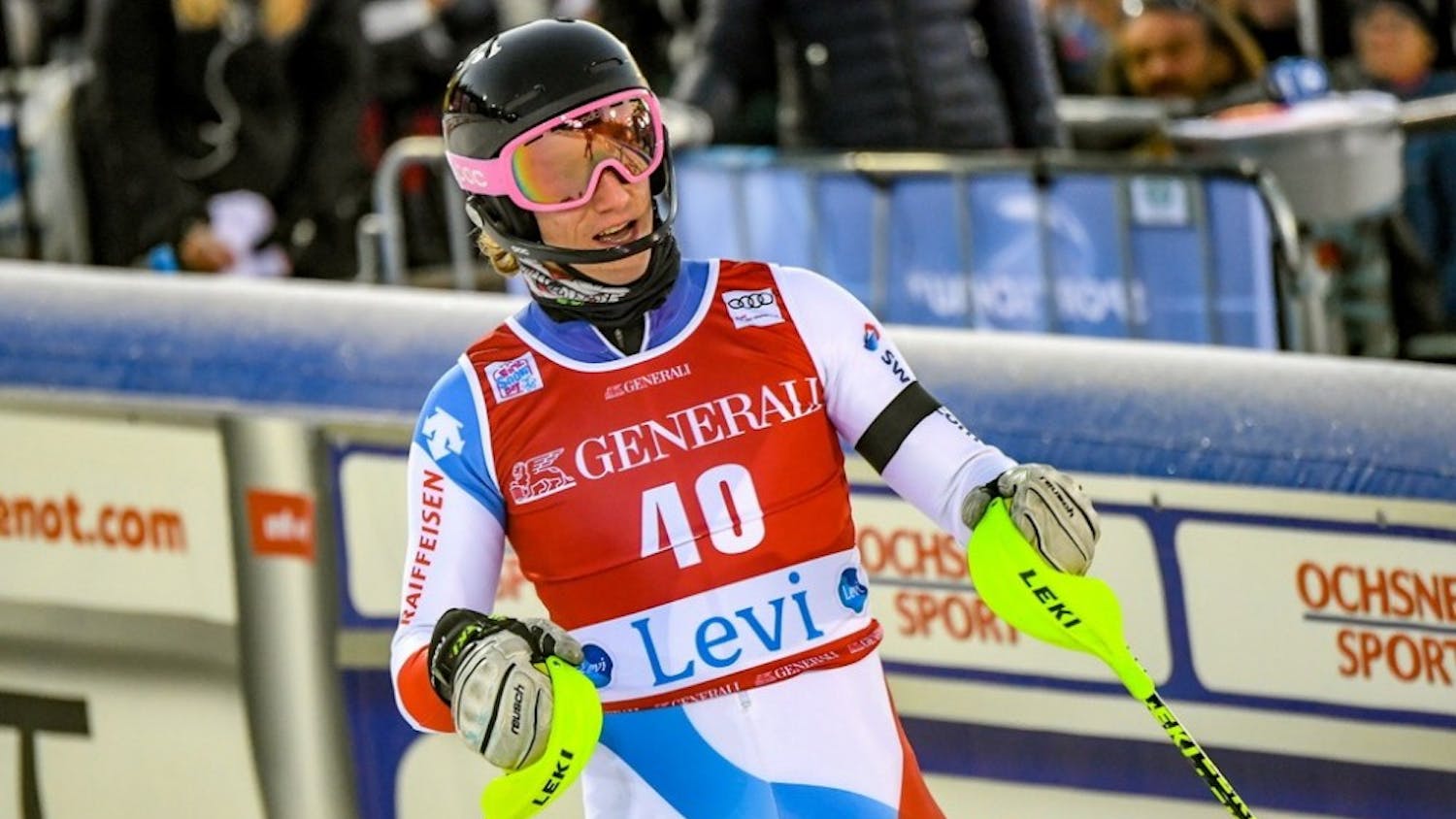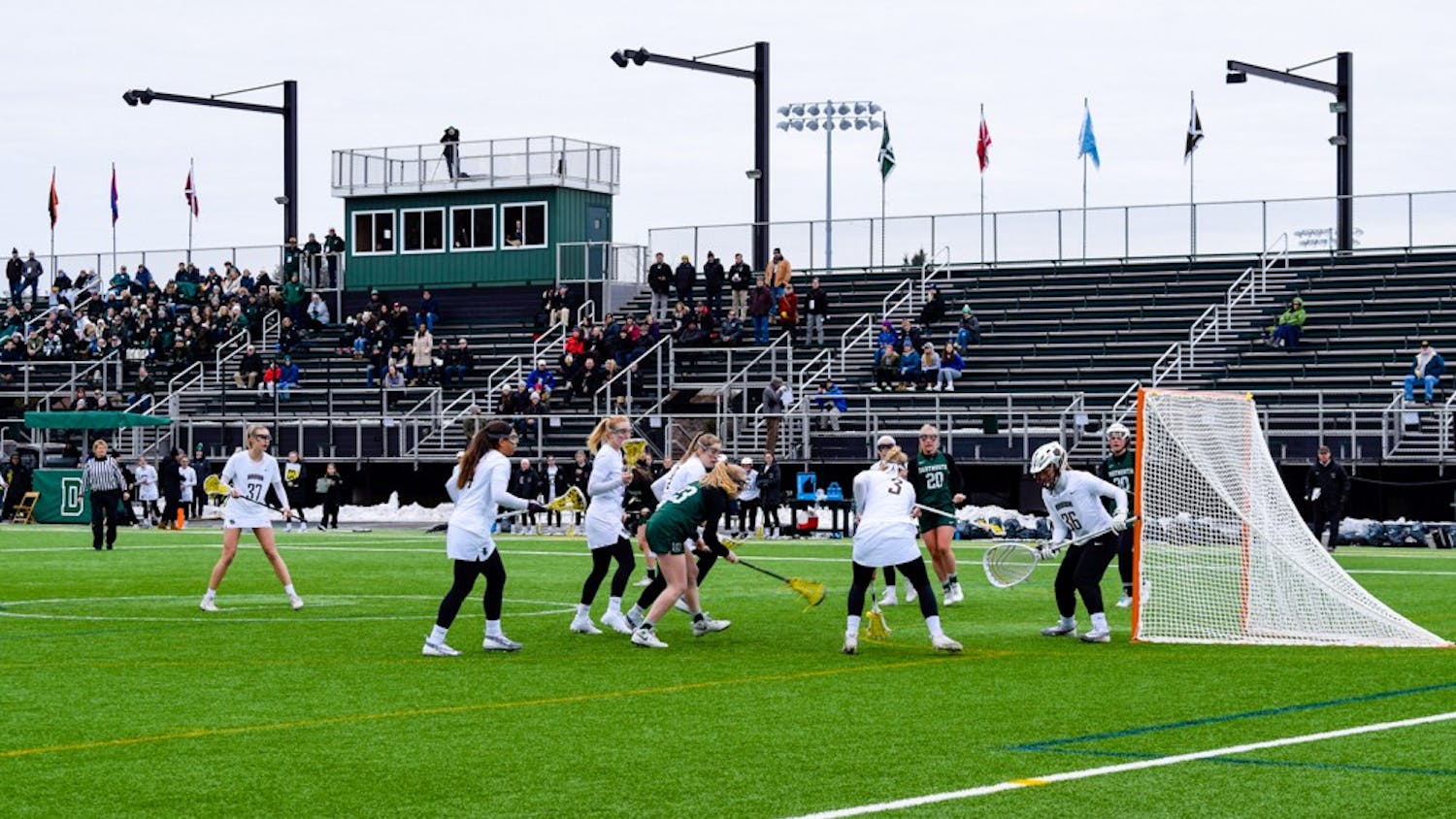Dartmouth women’s lacrosse hired Alex Frank earlier this month to be the fifth head coach in team history, replacing Stanford-bound coach Danielle Spencer. Frank spent the past four seasons coaching at the University of Colorado Boulder and served as associate head coach during her final two seasons.
Frank had a successful tenure with Colorado, helping the Buffaloes reach the NCAA Tournament the last three years and the second round in the past two. Ironically, the Buffaloes’ first round victory this year came in a tight match against the Big Green. In 2018, Frank earned the distinction of Assistant Coach of the Year from the Intercollegiate Women’s Lacrosse Coaches Association.
In addition to her associate coaching position with Colorado, Frank served as a coach for U.S. Lacrosse and the women’s national team. She also spent time as recruiting coordinator for Boston College before assuming similar responsibilities for Colorado. Prior to coaching, Frank had a decorated playing career, winning three national titles at Northwestern University. For her success on the field, Frank was named an All-American athlete three times.
How do you think your experiences with Colorado and your tournament success there helped prepare you for this position?
AF: You learn so much from your coaching career at all the different places that you’ve been. Every year you grow up a little bit, and this past year, we made it to the second round of the tournament again, so you know what it takes to get to that level. Playing Dartmouth in the first round was pretty special because that’s where I’m now going to be the head coach, so seeing how far they made it and seeing how much fight they had to try to make it to the second round was great. Colorado just happened to score more goals than Dartmouth, so that’s why they came out on top. But there was so much fight and excitement for the opportunity, and it just shows what the Dartmouth program is capable of. It shows me what the team is willing to put in to be where they want to be.
In your opinion, what is the best part of being a coach?
AF: As you go throughout your career, you’re always trying to give back to the sport you love, so as a coach you feel you can do that at the top level. At the end of the day, I love going to work and love being able to mentor and motivate female student-athletes — it just makes everything fun.
What attributes do you think you bring to the table as a coach?
AF: I’m incredibly passionate as a head coach. I think I bring fun to everything that I do. I know when it’s time to be serious but also know when it’s time to have fun and enjoy what I’m doing. I’m incredibly competitive, and it pushes me to work hard and outwork others, which is something I was taught at a young age. There will always be people outworking you, but how do you outwork them? Hopefully that competitiveness brings success to the program that I’m at.
Part of what you’ve discussed about being a head coach at Dartmouth is the special culture here — could you speak to that and to the reasons why you chose this job?
AF: Dartmouth women’s lacrosse has a rich tradition of being successful in the classroom and on the field. There have been so many good coaches who have been a part of this program and turned it into what it is. I am very thankful for what Spencer has done for this program over the last few years, and now I can slide in and put my mark on this program and continue this legacy of success. That’s what helped make this job really attractive: There’s a lot of opportunity to be successful, and there’s so much support for athletics and academics so that student-athletes and coaches can be successful in whatever they want to accomplish.
How do you expect to build on the team’s recent success and what challenges do you expect in the process?
AF: I think it’s always challenging for the team when you have a new head coach — to learn their methods and styles — so hopefully I will be able to work with the players and get them accustomed to the way that I do things. I don’t think there will be too many differences, but it’s still a challenge to learn from one another and get the most out of the team. It’s always a challenge to be better than last year. We lost a strong senior class, and while there are a lot of returners that are going to make an impact, we will always be building. We need to take advantage of the incoming freshmen that we have and find the perfect combination on the field to build off of what happened last year.
How do you expect the veteran players to step up, and who have you talked to the most?
AF: Honestly, I’ve had so many conversations with so many players in all the classes, so there’s not any person in particular. What’s exciting about that is that there are leaders across the board. The senior class has so many good leaders in it, but to see the conversations with the other classes as well, you see what they want for the team. It will be important to work with all the players — the seniors especially — as they’ll be the big point of contact and get a pulse on the team. To have leadership in every class is really exciting: It really allows your team to build and have so many different people to go to when they have questions.
You talked about the incoming freshmen, but broadly speaking, what’s the recruiting process like as a new coach?
AF: I have yet to wear green on the sideline at recruiting tournaments, and this weekend will be my first weekend. I’ll be able to have a better answer after these next two weekends now that I can officially be in Dartmouth green on the sideline. Spencer did an excellent job of filling the ’19 and ’20 classes, and I’m excited to see what opportunities arise in the next class. I’m excited to get an idea of what I’m looking for in a Dartmouth student-athlete, but I know I want to find the right fit for Dartmouth: strong academics, strong athletics and passion for the school.
What are your goals for this season and your general coaching philosophies?
AF: One of my philosophies is to get better everyday, and that’s something we can measure — are we better than we were yesterday? With that being said, we still want to get better than last season, advance to second round and win the Ivy League outright. Those goals are always something that we’re looking to accomplish. We want to be better than we were before — the day before, the season before. How do you do that? You evaluate yourself, and you look at points where you will improve. We always need to evaluate ourselves and hold ourselves accountable. That has to do with hard work, even off the field, always outworking our opponents in every way, whether it is in the classroom or in the community. We’re always getting better in everything we do to help student-athletes meet their potential.
This interview has been edited and condensed for clarity and length.




